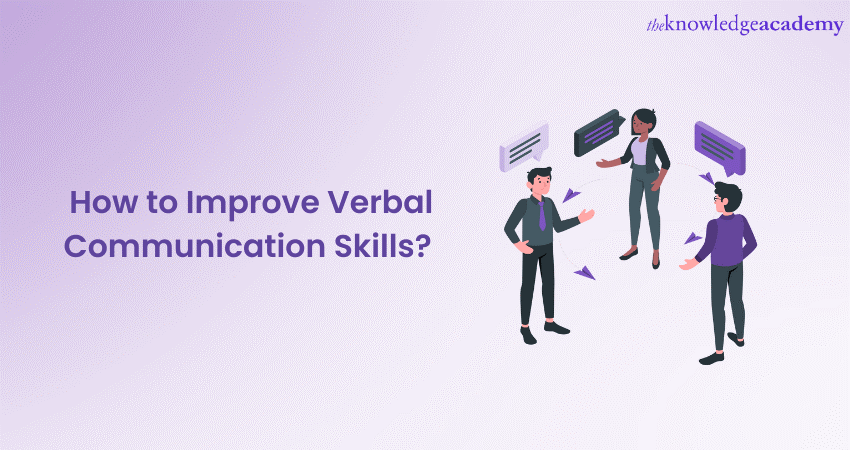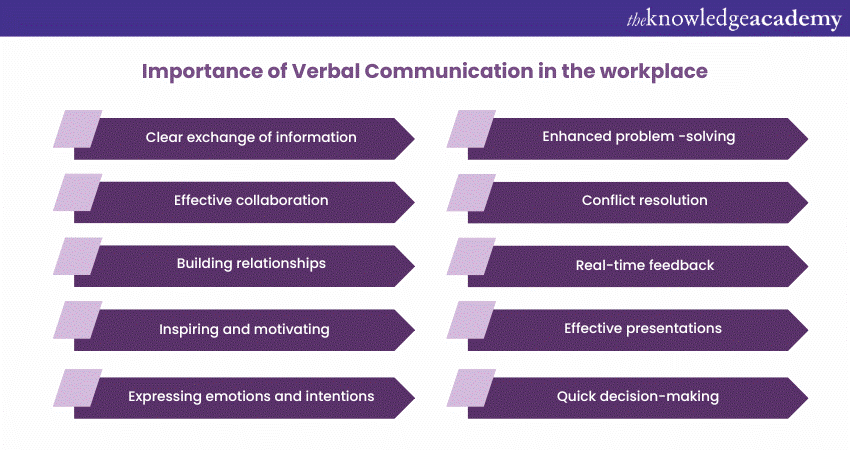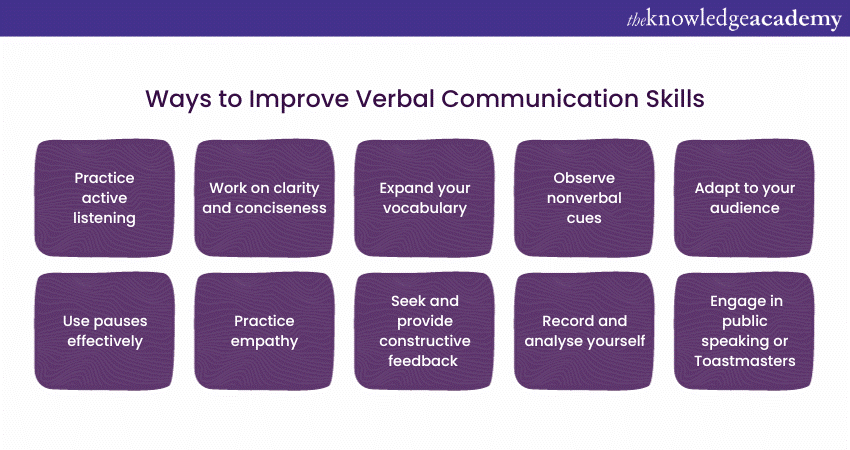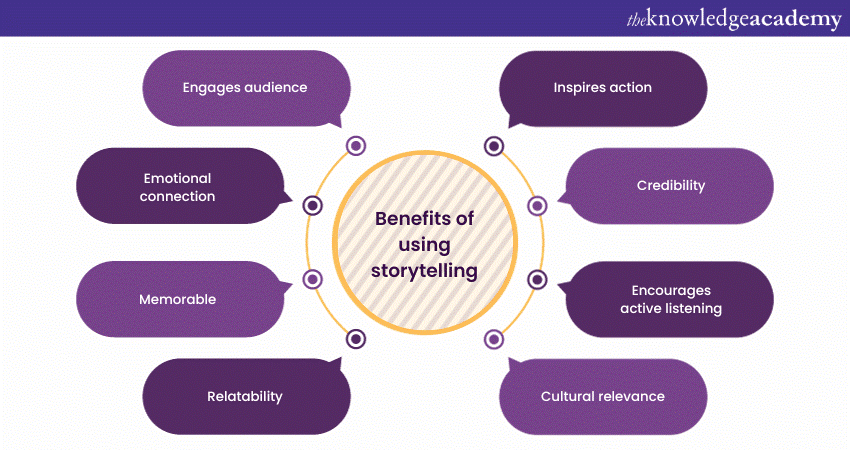We may not have the course you’re looking for. If you enquire or give us a call on +30 2111995372 and speak to our training experts, we may still be able to help with your training requirements.
We ensure quality, budget-alignment, and timely delivery by our expert instructors.

Learning How to Improve Verbal Communication Skills can make a big difference in how you connect with various people at work. It's not only about your words but also about using the right ways to talk and show your feelings without words. By getting better at these abilities, you can become someone everyone wants to have conversations with and listen to.
According to Statista, the global revenue from communication services is expected to increase to £1.29 trillion in 2028. Businesses use all types of Communication Skills to help their customers before, during and after they visit their business, for various services or products. Discover How To Improve Verbal Communication Skills with our comprehensive blog to get practical tips to enhance your ability to Communicate.
Table of Contents
1) What are Verbal Communication?
2) Importance of Verbal Communication in the workplace
3) Ways to Improve Verbal Communication Skills
4) Managing difficult conversations
5) Conclusion
6) FAQs
What are Verbal Communication Skills?
Verbal Communication Skills is the art of using language to convey both elaborate and short information effectively and efficiently. These skills represent how you can speak to deliver as well as receive messages with the help of active listening, asking for clarity, asking open-ended questions to help gain insights, both understanding verbal and non-verbal communications and speaking confidently, clearly and concisely to engage audiences.
Importance of Verbal Communication in the workplace
Verbal Communication Skills involves using words to convey ideas, thoughts, and emotions. It's the primary means through which we discuss strategies, present proposals, and exchange feedback. Clear and concise Verbal Communication ensures everyone is on the same page, minimising misunderstandings and reducing errors, especially in the workplace.

Here are some points that will help you to understand the importance of Verbal Communication:
a) Clear exchange of information: Verbal Communication allows co-workers to share ideas, updates, and important details swiftly, ensuring everyone has the same understanding of tasks and objectives.
b) Effective collaboration: Collaborative projects rely on effective communication to pool diverse skills and ideas together, leading to better solutions and outcomes.
c) Building relationships: Through Verbal Communication, employees bond, express empathy, and establish rapport, creating a positive and harmonious work environment.
d) Inspiring and motivating: Well-spoken words can motivate colleagues, boost morale and encourage teamwork towards common goals.
e) Expressing emotions and intentions: Verbal Communication lets us convey emotions, intentions, and enthusiasm, adding a personal touch to conversations.
f) Enhanced problem-solving: Discussions and brainstorming sessions allow for different perspectives, helping to solve complex challenges collectively.
g) Conflict resolution: Open Verbal Communication helps address misunderstandings and conflicts by providing a platform for clear explanations and discussions.
h) Real-time feedback: Immediate verbal feedback aids in adjusting actions, refining tasks, and ensuring alignment with expectations.
i) Effective presentations: It is crucial during presentations, allowing information to be conveyed clearly and engagingly.
j) Quick decision-making: Verbal discussions facilitate swift decision-making, enabling teams to respond promptly to changing circumstances.
k) Interpreting nuances: Tone, pitch, and body language enrich Verbal Communication, conveying emotions and nuances that text-based communication may miss.
i) Personal touch: Verbal interactions bring a human element to communication, helping employees connect on a personal and professional level.
m) Reduced misunderstandings: Verbal Communication minimises misunderstandings caused by unclear written messages, as immediate clarification is possible.
n) Efficient problem addressing: Verbal Communication allows for on-the-spot addressing of concerns, reducing delays and bottlenecks.
o) Effective leadership: Strong Verbal Communication is a hallmark of effective leadership, as leaders need to articulate visions, expectations, and goals.
p) Engaging meetings: Meetings rely on Verbal Communication to share updates, brainstorm ideas, and make collaborative decisions.

Ways to Improve Verbal Communication Skills
Improving Verbal Communication Skills is essential for success in the workplace and in various aspects of life. Here are some practical steps you can take to improve your Communication Skills.

Practice active listening
Active listening implies giving your complete attention to the speaker. When someone is talking, focus on them without getting distracted. Ask questions to show you're interested and be more engaged in the conversation. After they finish, offer feedback to let them know you understood what they said.
It's important that you do not interrupt while they're speaking. Instead of planning your response, try to understand their message completely. Active listening makes the speaker feel cherished and leads to better understanding and communication between both parties.
Work on clarity and conciseness
Being clear and concise means expressing your thoughts in a straightforward way. Arrange your ideas in a logical order so it's easy for listeners to follow your thoughts. Clear and concise Communication helps prevent misunderstandings and keeps the conversation focused on the main points, making it more efficient and effective.
Expand your vocabulary
Improving your vocabulary involves learning new words and expressions. You can achieve this by reading articles and books and having conversations with different people. The more words you know, the better you can express your thoughts and ideas. A broader vocabulary also allows you to connect with others more precisely and convey your messages with clarity.
Observe nonverbal cues
Pay attention to how you use your body, face, and voice. For example, make sure to look at the person you're talking to, so they know you're interested. Use gestures that match what you're saying and change your voice and tone to match how you feel. This helps others understand your emotions and the meaning behind your words.
Are you interested to enhance your communication skills, boost your confidence, and transform your relationships? Register now for our Communication Skills Training!
Adapt to your audience
Think about the people you're talking to. Consider what they like and how much they understand about the topic. Also, think about their culture and background. This can help you choose the right words, and way of speaking that makes sense to them.
Adapting like this makes your Verbal Communication Skills clearer and more relatable. It's like using the language and ideas that your audience feels comfortable with. It allows them to understand and connect better with what you're saying.
Use pauses effectively
Sometimes, it's good to stop talking for a moment. Pauses give people time to think about what you said. They also help you emphasise important points. Speaking too fast can make it hard for others to catch your message.
So, remember to slow down and use pauses wisely. This gives everyone a chance to absorb what you're saying and will make your Communication more engaging and easier to follow.
Practice empathy
Empathy means understanding how others feel and see things. When you're talking, try to imagine being in their shoes. This helps you connect with them better. It's like showing that you care about their emotions and thoughts.
When you communicate with empathy, your words become more meaningful. If you talk in a way that shows you understand and respect their feelings, it will make your interactions more genuine and building stronger relationships.
Seek and provide constructive feedback
It's helpful to ask others for feedback on how you talk and share your ideas. You can ask your friends, mentors, or co-workers. Listen carefully to what they say – it can point out areas where you can get better.
At the same time, you can help others too. When you notice things that can help them speak better, tell them in a kind way. This exchange of feedback makes everyone improve their Communication Skills and become better listeners and speakers.
Are you interested to amplify your influence, improve relationships, and excel in both personal and professional relationships? Sign up now for our Effective Communication Skills Training!
Record and analyse yourself
Recording your conversations or when you talk in front of a group is a useful trick. Afterwards, listen to what you said and how you said it. This helps you spot areas where you can do better. Sometimes you mightuse filler words like "um" or "uh" which you can reduce.
You can also catch places where you didn't speak clearly or said the same things a lot. By noticing these things, you can work on fixing them and become clearand more confident Communicator.
Engage in public speaking or Toastmasters
If you want to enhance your Verbal Communication Skills, you can join groups that help with this. Toastmasters is one example. Here, you can practice speaking in front of others in a friendly setting. More experienced speakers can give you feedback that helps you improve.
This practice helps you to build your confidence and makes you a better speaker over time. It's like a safe place to learn and get better, and it's also great for becoming comfortable with Public Speaking. This practice will help you to talk confidently in various situations.
Manage Communication anxiety
If you feel nervous when talking to others or presenting in front of a group, there are effective ways to handle it. Try calming techniques, like taking slow, deep breaths or imagining a peaceful place. Being well-prepared also helps a lot. When you plan and practiceyou'll know what to say, you'll feel more self-assured and less anxious. It will be also easier for you to make the situation much easier to handle.
Learn how to elevate your Public Speaking skills with our Public Speaking Training!
Read aloud
Reading aloud is a simple yet powerful way to improve your Verbal Communication Skills. Whether it's from books, articles, or your own writing, reading out loud helps you speak more clearly and with a good rhythm. This practice hones your pronunciation and fluency. It helps you train your mouth and voice to work together smoothly. This also results in clearer and more understandable Communication with your audience
Role-playing exercises
Imagine being in different scenarios and practising how you'd talk and react. This is called role-playing. By doing this, you become familiar with various Communication styles and responses. It's akin to rehearsing before the real thing. Role-playing boosts your comfort and readiness to unlikely or sudden situations in real life. Thus, it helps in making your interactions feel more natural and confident.
Use storytelling

Sharing stories during conversations is a great way to catch people's attention. When you tell a story, it's like painting a picture with words. It makes your message interesting and memorable. Stories also make your ideas relatable which helps people can connecting with them. So, incorporating stories into your talks helps you Communicate better and makes your interactions more engaging.
Managing difficult conversation
Dealing with tough talks can be challenging, but there are ways to handle them well. When faced with a difficult conversation, it's important to stay calm and composed. Here are a few ways through which you can manage them effectively:
a) Stay calm: Keep your emotions in check. Stay composed and approach the conversation with a clear mind.
b) Choose the right time and place: Find a quiet and private space where you won't be interrupted, and both parties can talk openly.
c) Listen first: Give the other person a chance to express themselves. Listen actively and don't interrupt.
d) Stay respectful: Even if you disagree, be respectful. Treat the other person's perspective with consideration.
e) Use "I" statements: Speak from your perspective using phrases like "I feel" to avoid sounding accusatory.
f) Be clear and specific: Explain the issue clearly and provide examples to help the other person understand.
g) Ask open-ended questions: Allow the other person to share their thoughts by asking questions that can't be answered with a simple yes or no.
h) Seek solutions: Focus on finding solutions rather than placing blame. Collaborate to reach a resolution.
i) Take breaks if needed: If emotions escalate, it's okay to take a break and come back to the conversation later.
j) Summarise and agree: Recap what was discussed and agree on steps moving forward.
Do you want to enhance relationships, boost confidence, and excel in your personal and professional interactions? Sign up now for our course on Communication and Interpersonal Skills!
Conclusion
Learning How to Improve Verbal Communication Skills is a skill that leads to various connections and professional success. By practising active listening, speaking clearly, adjusting to different people, and using body language well, you can make your conversations better. These skills help you connect with others in a stronger way. So, improving how you talk can make a difference whether you're at work or with friends.
Learn how to transform your professional communication with our Business Communication Training!
Frequently Asked Questions

Ans: Here are some ways that you can improve your Verbal Communication Skills:
a) Thinking before speaking
b) Using easy language
c) Avoiding any technical jargons
d) Understanding your audience
e) Be mindful of how you speak
f) Improve your body language
g) Practicing active listening
h) Improving your confidence
i) Working on the feedback you receive.

Ans: Here are some ways you can improve your Communication Skills for your job interview:
a) Maintain steady eye contact with the interviewers
b) Talk slowly so that interviewers can understand you
c) Listen carefully to the questions that are being asked to you
d) Be confident while speaking
e) Improve your body language
f) Carefully choose your words
g) Always ask questions which are related to your interviews in the end

Ans: The Knowledge Academy takes global learning to new heights, offering over 30,000 online courses across 490+ locations in 220 countries. This expansive reach ensures accessibility and convenience for learners worldwide.
Alongside our diverse Online Course Catalogue, encompassing 17 major categories, we go the extra mile by providing a plethora of free educational Online Resources like News updates, blogs, videos, webinars, and interview questions. Tailoring learning experiences further, professionals can maximise value with customisable Course Bundles of TKA.
The Knowledge Academy’s Knowledge Pass, a prepaid voucher, adds another layer of flexibility, allowing course bookings over a 12-month period. Join us on a journey where education knows no bounds.

Ans: Discover Communication courses with The Knowledge Academy, offering Assertiveness Skills Training, Effective Communication Skills and Public Speaking Course. Designed for diverse skill levels, these courses provide a comprehensive understanding of Communication Skills methodologies.
Whether you are starting your journey or aiming to elevate your Project Management expertise, immerse yourself in our Verbal Communication blogs to discover more insights!
Upcoming Business Skills Resources Batches & Dates
Date
 Public Speaking Course
Public Speaking Course
Fri 28th Feb 2025
Fri 11th Apr 2025
Fri 27th Jun 2025
Fri 22nd Aug 2025
Fri 24th Oct 2025
Fri 28th Nov 2025







 Top Rated Course
Top Rated Course


 If you wish to make any changes to your course, please
If you wish to make any changes to your course, please


